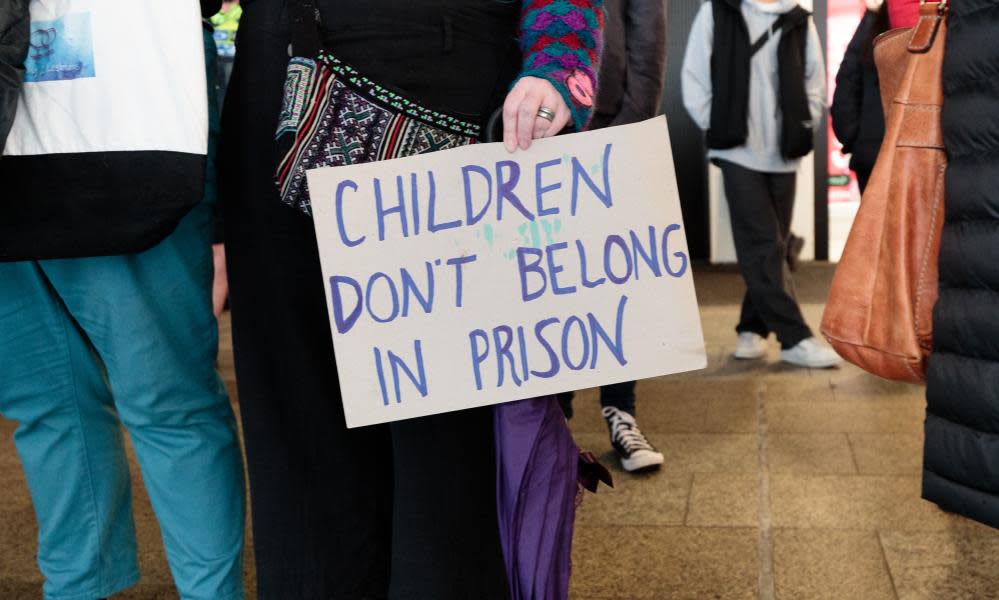‘Harrowing’ incidents of self-harm revealed among boys held at Perth adult prison

There have been three suicide attempts by children transferred to an adult prison in Western Australia since mid-July, and 13 incidents of “minor self-harm”, prompting advocates to call for their immediate transfer and wider reform of the juvenile justice system.
Last month the WA government transferred 17 young people, some as young as 14, from Perth’s Banksia Hill juvenile detention centre to an adult jail at Casuarina after “escalating” disruptions from young people. The juveniles are being detained in a separate area from the adult prisoner population.
On Thursday, the WA government revealed the number of self-harm and suicide attempts by young people inside the adult prison as well as at Banksia Hill, following questions from the Greens state MP Brad Pettitt in parliament.
The Department of Corrections had previously refused media requests for the figures as they were not “publicly available”.
According to the answers provided parliamentary secretary Matthew Swinbourn, representing the corrections minister, last month there were 36 reported self-harm incidents and one attempted suicide attempt at Banksia Hill.
There were three minor self-harm attempts at Banksia Hill during the first week of August.
At the Casuarina prison, from 20 to 31 July 2022, there were two minor self-harm attempts and two attempted suicide attempts at Unit 18, the area where the juveniles are being held.
From 1 August to 8 August there were 11 minor self-harm attempts and one attempted suicide attempt at Unit 18.
Advocates have urged the WA government to reverse the decision to move the boys to the adult jail, citing the spate of self-harm and suicide attempts.
The project director of the National Suicide Prevention and Trauma Recovery Project, Megan Krakouer, said the figures needed to prompt urgent action.
“The number of kids harming themselves at this level is truly harrowing, it’s disturbing, it’s catastrophic and it’s a sign the system is failing,” Krakouer said.
“This should never have been an option. The government needs to admit that it made a mistake and move them back to Banksia Hill.”
But Krakouer said the youth detention facility was also at “crisis point” and intervention was needed to prevent further incidents or a death.
Hannah McGlade, a human rights lawyer, academic and member of the United Nations’ permanent forum on Indigenous issues, said the state was at risk of damaging its reputation.
“It’s a national shame,” the Noongar woman said, referring to the jailing of the boys in the adult prison. She queried whether the detention was consistent with Australia’s obligations under the Convention on the Rights of the Child.
McGlade said the federal government and the states needed to urgently ratify protocols that uphold the human rights of incarcerated young people.
“We have not yet signed the optional protocol to the convention allowing for communication of children and youth affected … to the UN body to highlight and hold a country responsible.
“We have to do that and is clearly now very urgent.”
McGlade said she would be bringing her concerns to the UN forum in an upcoming meeting.
Both women said better systems were needed to limit the risks of self-harm, suicide and violence among young people.
“We need justice reinvestment, we need elders and community support to have bush camps where young people can get help before ending up in these sorts of situations,” McGlade said.
“This issue needs radical kindness, it needs radical empathy because this crisis cannot end without a transformation of our incarceration system,” Krakouer said.
The commissioner for corrective services, Mike Reynolds, said in a statement any incident of self-harm was concerning.
“Whether there is one, or multiple, we take any threat of self-harm or self harm incidents extremely seriously and respond immediately with a range of specialist support services,” Reynolds said.
Any young person at risk from self harm was given comprehensive support while incarcerated, his statement said, and had access to psychologists, counsellors and cultural support from Aboriginal liaison workers and support staff.
He said the detainees moved to Unit 18 had posed a “significant risk” to themselves and others, but “stability is increasing at the temporary facility and at-risk behaviours are decreasing”.
In Australia, the crisis support service Lifeline is 13 11 14. In the UK and Ireland, Samaritans can be contacted on freephone 116 123, or email jo@samaritans.org or jo@samaritans.ie. In the US, the National Suicide Prevention Lifeline is at 800-273-8255 or chat for support. Other international helplines can be found at befrienders.org

 Yahoo Movies
Yahoo Movies 
